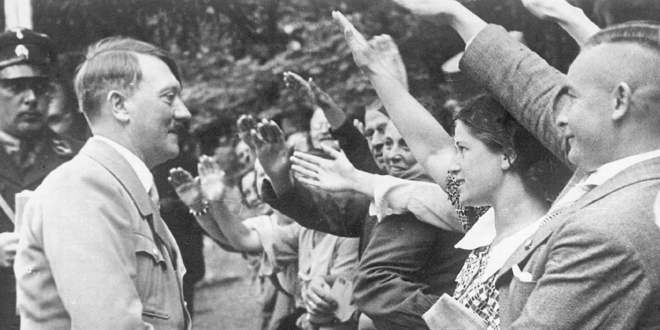Dietrich’s Devotion
Dietrich came from a wealthy, influential family. From the time he was 13 he knew he wanted to study theology, much to the consternation of his parents. At 21 he passed his doctoral exams and he then traveled, lectured and ministered in many countries. He was a pastor to some small congregations in London, and he visited the United States. It was the spirit of the U.S. African-American congregations that helped him clarify the real essence of Christianity and personal religion. When the Nazis took away his right to teach seminary and declared him as an “enemy of the state,” he could have run away.
I am in awe of his single-minded devotion to protect the meaning of the Christian church. He attempted to change how German pastors were being trained so that they had a personal relationship with God instead of just head knowledge. He taught his seminary students to pray, meditate and sing — something strange for German theologians. Dietrich saw through the designs of the National Socialist overthrow of the government and German church. He fought with stubborn determination to warn worldwide Christians who were being deceived by Hitler’s cronies. In public they portrayed a new “positive Christianity,” yet in private they denounced the weakness of the Gospel.
Dietrich’s Pain and Faithfulness
Dietrich was pained by the persecution of his own Jewish brother-in-law, sister and children. First Jewish Christians were excluded from the Church, commerce and society. Then The Nuremberg Laws further destroyed Jewish rights and citizenship. Dietrich saw each step in the re-creation of his country as an obligation for the church to be a voice in the world. He helped design organizations and documents of declaration to sharpen the contrast between Jesus’ mission and that of the impostor Nazi church. He struggled with depression.
As I look into the eyes of his photos in my book, I want to thank Dietrich Bonhoeffer for his faithfulness in listening to God. I want to shout to Christians in my generation to listen to God before we, too, lose the meaning of church. How much different might Europe be today if Dietrich had been able to live and help shape the world after World War II? We will never know. However, now is the perfect time to read Bonhoeffer by Eric Metaxas.
Questions for personal journaling or small groups:
1. Do you agree with Dietrich that the church has been “instituted by God to exist for the whole world?” Do Christians have an obligation to speak out about things that do not directly affect the church? Why or why not.
2. How can Christians “speak for those who cannot speak?” Or should we?
Karen Spruill writes from Orlando, Florida.
© 2002 - 2025, AnswersForMe.org. All rights reserved. Click here for content usage information. Answers for Me Support & encouragement for every-day life
Answers for Me Support & encouragement for every-day life



